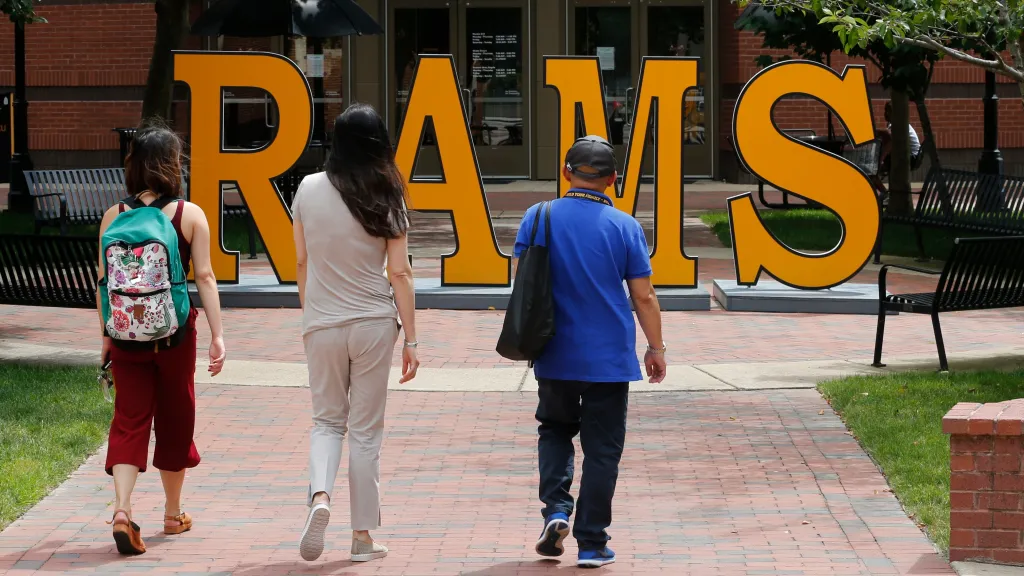
As we observe National Hazing Awareness Week (Sept. 22-27), it is a crucial time for reflection and action across our nation’s campuses. Two years ago, Virginia Commonwealth University took a significant step toward shifting campus hazing culture by joining the national Hazing Prevention Consortium, signaling its strong commitment to fostering a safer environment for its students. As we enter the third year of this initiative, we celebrate progress and recommit to the ongoing work of campus hazing prevention.
Hazing is a deeply entrenched and pervasive issue, representing a critical public health challenge in American higher education. Our research indicates that more than half of college students involved in clubs, teams and organizations experience hazing, with nearly half having encountered it even before arriving at college. These practices, which often include alcohol consumption, humiliation, isolation, sleep deprivation and even sexual acts, profoundly undermine the core mission of universities to provide environments where students can learn, grow and thrive. The tragic consequences, which can include severe physical injury and lasting mental health impacts, underscore why the recently enacted Stop Campus Hazing Act was a bipartisan federal imperative, mandating greater transparency and prevention efforts nationwide.
VCU, like many institutions, has faced its own painful encounters with hazing. The tragic death of 19-year-old Adam Oakes in 2021 from acute alcohol poisoning during a Delta Chi fraternity hazing incident remains a stark reminder of the devastating toll hazing can take. Oakes was reportedly coerced into drinking an entire bottle of whiskey as part of a “Big Brother ritual,” left “dangerously intoxicated” and subsequently abandoned on the floor. This incident, which resulted in a 0.419% blood-alcohol content level, led to a wrongful death lawsuit and criminal charges against multiple fraternity members. It also brought to light Delta Chi’s history of concerning behavior, which included a revocation of its recognition for two years prior to Oakes joining.
After Oakes’ death and the tireless advocacy of his family, Virginia passed Adam’s Law, which requires hazing prevention programs in colleges and universities and mandates the reporting of hazing incidents. The federal Stop Campus Hazing Act was also signed into law, partly in Oakes’ memory, with his father, Eric Oakes, expressing hope that it would save lives. VCU has actively implemented these requirements, notably through its Student Organization Conduct Report, which details violations and suspensions and serves as a vital step towards transparency. This commitment is evident in recent actions, such as suspensions of several fraternities and others facing sanctions for any policy violations, including various hazing and alcohol-related violations.
VCU’s decision to join the Hazing Prevention Consortium marked another turning point. VCU recognized that hazing does not align with the mission and values of the university and is strictly prohibited by university policy and state law.
As a member of the consortium, VCU stands alongside other prominent institutions such as William & Mary, the University of Mississippi, Harvard and Princeton in this crucial effort. The consortium is a multi-year, research-to-practice initiative led by StopHazing and designed to build a robust evidence base for hazing prevention on college campuses. During a three-year collaboration, VCU has worked with a team of research and prevention experts to rigorously assess its campus climate, build institutional capacity, and develop, implement and evaluate data-informed prevention strategies, all guided by the Hazing Prevention Framework. This proactive approach positions VCU among national leaders in the critical effort to cultivate positive group belonging that is free from hazing.
National Hazing Awareness Week serves as an annual call to action, and VCU’s participation in the Hazing Prevention Consortium is a powerful declaration of its dedication to student safety and well-being. By strengthening existing resources such as the Hazing Reporting Form and continuing to enhance the transparency of its Student Organization Conduct Report, VCU empowers its community to recognize, intervene and report incidents, fostering a shared responsibility among students, faculty, staff, alumni and families.
Elizabeth Allan of Orono, Maine, is a professor of higher education at the University of Maine and principal at StopHazing.org. Rachael Tully of Richmond is assistant dean of students at Virginia Commonwealth University.



